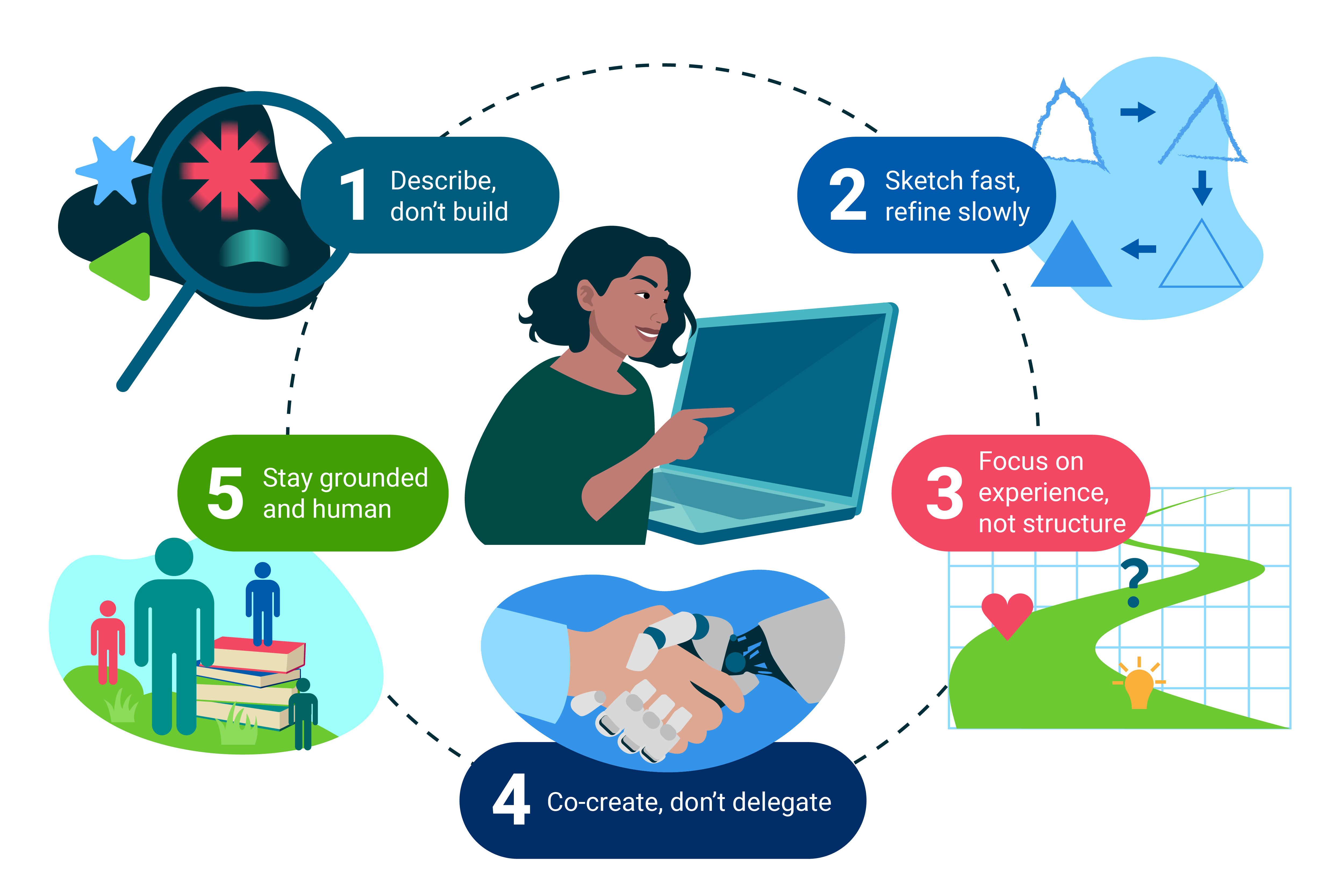Vibe learning design: a faster, more creative way to work with AI

Vibe coding comes from software development. It means focusing on outcomes, not technical instructions.
In learning design, this approach helps you co-create with AI and stay focused on what matters—active learning, authentic experiences, and meeting learner needs.
What is vibe coding?
In software development, vibe coding means guiding AI by intent rather than detailed instructions. You focus on the outcome, not the technical steps. Instead of coding every element, you describe what the result should feel like, and the AI fills in the blanks.
I think this way of working has a lot to offer learning designers. It’s fast, iterative and human-centred. And it’s not about replacing what we do—it’s about freeing us to spend more time on what matters: experience, clarity and connection.
How does that work in learning design?
This mindset from software development maps well to what’s often called vibe learning design—a way of working built around five simple principles.
1) Describe, don’t build
Start by describing the learning experience you want to create. Don’t worry about structure or tools yet—just express the intent. AI can then generate storyboards, outlines or visual ideas to get things moving.
2) Sketch fast, refine slowly
Use AI to prototype quickly. Try different tones or formats. Instead of one draft, explore five versions in a few minutes. Then choose the best one and shape it with your own design lens.
3) Focus on experience, not structure
Let AI help with outlines or repeated content. Your job is to design moments that matter—reflection, challenge, clarity, emotional hooks.
4) Co-create, don’t delegate
This isn’t outsourcing to AI. It’s a creative loop. You guide, refine and reject. AI speeds up the process, but you remain the designer.
5) Stay grounded and human
AI can generate content quickly, but quality, relevance and care come from you. You know the learners, the context, and the decisions they need to make—that’s where your expertise shines.